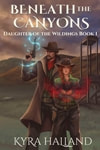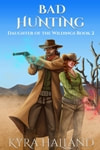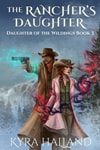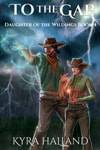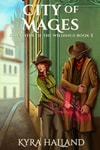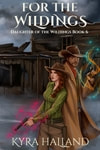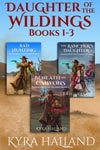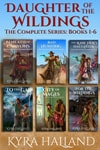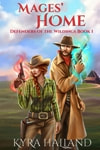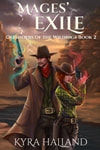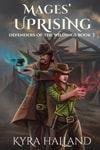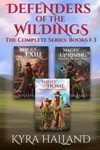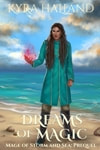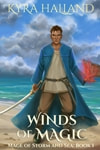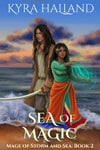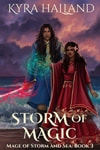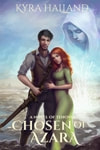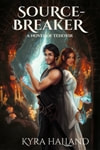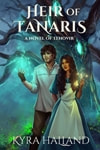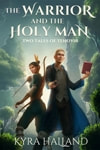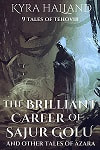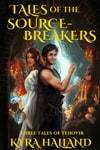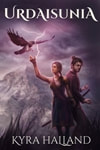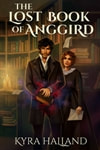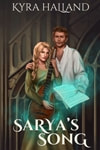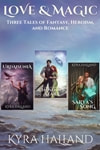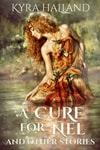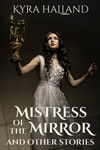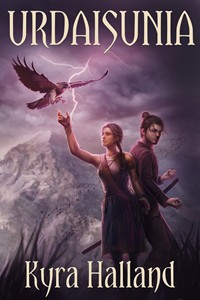 You see them all over the place, on the bestseller lists, in ads on Goodreads, on the front pages on Amazon and Barnes & Noble and probably on the front tables at brick&mortar bookstores and prominently displayed at Target. Novels about a fabulously wealthy, hot, tormented hunk who sets eyes on some sweet young thing and decides he is going to have his way with her (or possibly him; I'm not conversant with m/m romance but I wouldn't be surprised if this trend exists in that sector too) and won't take No for an answer. Kink ensues. (Note: I haven't actually read any of these, but I've read a bunch of book descriptions and reviews on GoodReads. Close enough for literary analysis, right? :-D) So, being the hard-blogging author that I am, I decided to examine my own novels through the lens of the 3 B's to see how they stack up to the latest hot trend, on a totally arbitrary scale from 1 to 10. This will be a series of three posts because there's a lot to talk about. (Oh, and as I'll be talking about books of mine that I haven't released yet, I will do my utmost to avoid spoilers. As always, the disclaimer is that these are romances in addition to being fantasy, so the more-or-less HEA is a given.) First up: Billionaires. The guys in these books are all fabulously, obnoxiously, breathtakingly rich. They are in their 20's and own half of Manhattan or Seattle or wherever. They seduce women in the offices of their world conglomerate headquarters and at expensive hotels where one night costs the same as a mortgage payment or two or four for us regular folks. Let's examine the heroes from my first five books (Urdaisunia, Chosen of Azara, The Lost Book of Anggird, Sarya's Song, and the Daughter of the Wildings series - which is actually six books but I'll consider it as one) through the billionaire filter. In Urdaisunia, Prince Eruz is the High Prince, the heir to the throne. Pretty good deal, right? He's gonna be king one day! Awesome :) But...the land of Urdaisunia has been suffering from worsening drought, food shortages, and epidemics for years, and has enemies from all sides, inside the country and out (and above), eyeing it so they can exploit what few resources it still has. Still sounds great, right? Oh, and his position as heir to the throne depends on the approval of his seriously disapproving father and his ability to outsmart his scheming brothers. All things considered, just chucking everything and running off to start over from scratch somewhere else starts to look pretty good. Billionaire rating: 6 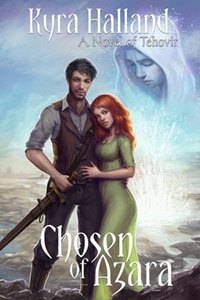 Chosen of Azara: Sevry is an actual, real live king. Yay! But he's got no country, no people, no home, no nothing. All he's got to offer a girl is an empty land, a ruined convent, a pure heart, and a willingness to work hard. Billionaire rating: 1 The Lost Book of Anggird: Roric is a professor, a highly valued breed in the Vorunne Dominion, and he's one of the elite of the elite. He's extremely well-compensated, both in salary (though he seldom has to actually handle any money himself) and in the living accomodations and other perks he's provided with. And then one night it all goes kablooey and he finds himself left with nothing but the love of a good woman (or not?), a price on his head, and an interesting new talent (as one of the test readers put it). Billionaire rating: 2 Sarya's Song: Adan is the heir of a fabulously wealthy family. Want to know how wealthy? Allow me to refer you to this quote from the book: Adan Muari, tall, handsome, well built, auburn haired, heir of a family that owned nearly a quarter of Msaka Ras and a substantial portion of Msaka Dolna, possessed a True baritone voice of divine quality and extraordinary [magical] strength, and an equally extraordinary opinion of himself. Msaka Ras and Msaka Dolna are not companies, nor buildings, nor city blocks. They aren't cities, or counties, or provinces, or even countries. They're continents. So yes, he's incredibly rich. But if the world's going to end, what difference does money make?
Billionaire rating: 10. or maybe 11. Daughter of the Wildings: Silas was born into one of the elitest of the elite mage families in Granadaia. He walked away from it all because he seriously disapproves of everything his family stands for and believes in, and they feel the same way about him. So now he's just making his way as a bounty hunter across the Wildings. If he catches a good bounty with a good price, he lives well for a while. No captures, no money. But he has his freedom and his integrity, which mean more to him than money any day. Billionaire rating: 2 Conclusion: Money and status aren't everything, and can be lost just like that. When you've got nothing left but yourself (or, in a relationship, when you've got nothing left but each other), that's when you see what you're really made of: money and status, or something more substantial. So far Adan is in the lead with a B,BB,&B rating of 11 (on a scale of 1 to 10). Next post: we'll see how he and the other guys stack up on the twin measures of Bad Boy-ness, inner torment and jackassery. Stay tuned! To see Camille LaGuire's take on this theme, start with this post on her blog: http://daringnovelist.blogspot.com/2013/09/day-6-and-billionaire-bad-boy-scale.html
3 Comments
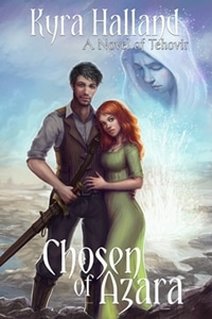 Something I read recently has led me to musing on Lucie's character development in Chosen of Azara. Lucie was kind of a risky character to write, and very difficult to get right (assuming I got her right). In fantasy, young noblewomen who go off on adventures are usually spunky and rebellious and seize eagerly at the chance to run off somewhere and do exciting and dangerous things. But with Lucie, I wanted to do something different - something that is pretty much the complete opposite of almost every fantasy heroine I've ever heard of. Lucie is pretty happy with the way things are and the life she has. She does have a bit of a free-spirited streak that pushes the bounds of convention and propriety, but she is willing (though somewhat reluctantly so) to accept the reasons why one day she will need to give up the things she enjoys doing. She also has the occasional complaint about her fiance, Estefan, but she understands that in her society, marriage is about a lot more than the whims of the heart. In spite of her "eccentricities," she wants to do what's right and proper and expected of her and to be a credit to her family. She wants the handsome husband, the beautiful house, the fashionable clothes, the social standing. She is looking forward to devoting her life to raising her children and managing her household. And then the dream, the things she wants and that she's always been taught that she should want, starts to fall apart at the same time that she's presented with an alternative that, according to everything she's been raised to believe, is unthinkable, that would cost her her family, her friends, her reputation, and everything that's important to her. Lucie finds herself in a quandary: cling to what she believes is right and important, for the sake of her and her family's name and reputation and her own security, or throw everything away and take a leap into the unknown. Either option requires more courage and resolve than Lucie possesses at the beginning of her story, and a major part of Lucie's story is watching her find the courage to do what her heart insists is, in the end, the right thing to do. I knew I was taking a chance of turning off readers with a character who seems weak, who wants to be proper and conventional, who is not only indecisive but outright offended when the handsome stranger says, "Throw everything away and come on my quest with me," and who wants to cling to the life she has even as it becomes increasingly clear that that life is detrimental to her. But it's a common source of conflict and growth in the real world: the person who hates their boring cubicle job but is afraid to quit because then how will they pay the bills? Or the person who hangs on to the same circle of friends they've known since junior high even though those friends aren't progressing beyond a junior-high mentality and the person wants bigger and better things out of life but they're afraid to leave those friends behind because what if they never make any new friends? Or the woman who can't bring herself to leave a bad relationship because what will she do once she's out on her own? We see spunky, rebellious, and strong-willed all the time in fantasy. With Lucie, I wanted to start with a character who is the opposite of that and show her growth into, not necessarily spunky and rebellious, but strong-willed and courageous enough to do what her heart is telling her is the right thing to do, no matter the pressures on her from other people or the consequences to herself. So that's the character growth part of this post. As for learning curves, that's my part. The great thing about being an independent author is that you're in charge of every aspect of your book, from what you write about in the first place to the final presentation. It's amazing to have that much control, but also involves learning a lot of new things. And one of those things is book covers. Book covers (though with ebooks what you're talking about is an image that represents the book on a website or on your ereader) are a hugely important tool for drawing attention to a book. They need to be eye-catching, attractive, and convey a good sense of what the book is about. For authors who publish with traditional publishing companies, the art/marketing departments take care of all that, and sometimes they do a good job and sometimes they don't. (Caution: any and all of those links may be NSFW. Brain bleach available in aisle 2.) Either way, the author generally has little if any input into or approval over what goes on the front of their book. Independent authors have the opposite problem: It's all up to us. We have to think of the concept and then license or commission the appropriate images. And it isn't easy to think of a single image to represent your whole book. One character? Multiple characters? Just a landscape? An object? A literal representation of a scene in the book or something more general? It's mind-boggling if you aren't used to doing this, and sometimes it takes trial and error. With Chosen of Azara, I wanted something representing one or more of the characters (I very much prefer book covers with pictures of the characters), and something representing the cove of Azara or another aspect of the magic in the book. I fiddled around with pictures of various crystals and necklaces, trying to get the magical talisman that is an important object in the book, but that didn't go anywhere. Finally I settled on a picture of someone who sort of looked like Lucie, and a picture of a rocky ocean cove, and tried putting them together, with results I wasn't entirely happy with. When I went looking for a cover artist for the Daughter of the Wildings series, I came across Design by Katt and fell in love with her fantasy portraits of women. I knew I'd found just the artist I needed to turn my Chosen of Azara cover concept into something wonderful. And she did - she took my original images and concept and did a gorgeous job with them. Her rendition of Lucie captures Lucie perfectly. It's a gorgeous cover and I love it, but I started feeling like maybe my concept doesn't really represent what Chosen of Azara is really about. Lucie is only one main character of three in the book, and the main main character is actually Sevry. So I started thinking he should be on the cover. As well, just having Lucie on the cover doesn't convey the dark, angsty, romantic, adult (as in grownup, not as in porno) nature of the book - it looks more like a Young Adult book, or maybe fantasy with a chick-lit-ish twist. So, reluctantly, I came to the conclusion that my original concept was a misfire. In the meantime, as I saw more of Katt's work and as she did the lucious cover of Sarya's Song, I came to realize what a really skilled and talented artist can do with photomanipulation and digital painting. It was okay if I couldn't find a photo of two people who look exactly like my characters - the main things to look for were the basic physical type and the positioning. Everything else, hair color, hairstyle, even clothing and facial expression, can be altered. So I went browsing for stock images for a new cover and almost instantly came across the PERFECT picture to become Sevry and Lucie. I ran it by Katt and she roughed out an idea of what can be done with it, and oh my, it's going to be amazing! She's working on it even as I write this. :-D So watch this space for the new cover for Chosen of Azara. Once I've revealed it here, I'll start uploading it to the various retailers where the book is available. The old cover isn't going away, though; it will still be around on the site, because I do think it's the perfect picture of Lucie. Update 3/17: Note the new new cover for Chosen of Azara. 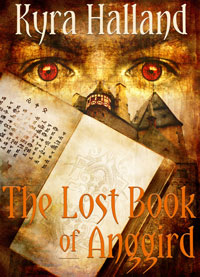 Every author has one. The Book of Eternal Revisions, where you need "just one more draft" to make it "good enough." And of course, each "one last draft" leads to another and another and another... For me, that book is The Lost Book of Anggird. Aside from the, oh, sixteen years or so it took me to sort out the story and characters and finish the first draft, this book has been through more revisions than any other of my books. And not because the first draft was that bad; really, looking back on it now, it was really pretty good, as far as first drafts go. No, the reason why I ended up going over and over and over it again was a bit of advice that prevails on various writing sites and forums (actually two bits of advice that form kind of an evil, story-eating symbiosis of doom): Before unleashing your novel on the world, polish it till it gleams, and a major part of this polishing is the removal of every unnecessary word. At the time that I completed the draft of Lost Book and began the unending cycle of revisions and edits, I was heavily under the influence of a certain forum popular among writers, which is especially focused on "professional" writing - that is, writing for conventional publication. The advice quoted above is prevalent on that forum. I was feeling my way back into writing original fiction after a long stint as a prolific fanfiction writer, and wondering if maybe I should consider testing the waters in the shark, er, agent pool again, so I paid diligent attention to everything said by the "experts" on the forum, and tried to apply it to my writing. (The thought of starting to query agents again lasted about 5 minutes, then died a swift and well-deserved death.) And, over three years of revising Lost Book according to those guidelines, here's what happened: When I got the feedback on Version 7 of Lost Book back from my test readers a few months ago and went in to do this last big round of revision, I realized that the prose was mushy and bland, almost entirely devoid of any color or personality whatsoever. I've been complimented on what people call my smooth, clear writing style, and received comments to that effect on Lost Book, but what I noticed went beyond smooth and clear. What I had done in the pursuit of producing "acceptable" writing was I had stripped out much of the lively language, interesting details, and other bits of personality from my writing. I started reading the manuscript and almost immediately began thinking, That doesn't say what I meant, and, Wow, that sentence was boring - made boring in my attempt to smooth out the flow and present my ideas in the fewest words. It was like unflavored, watery Cream of Wheat, or that rice cereal you feed to babies. With no lumps or sharp edges or interesting sticky-out bits - they'd all been smoothed out and polished into oblivion. Now, the advice to avoid unnecessary words isn't all bad. It's rooted in some good principles. In general, it's good to avoid repetitious redundancies and long passages that have nothing whatsoever to do with the story, and excessively purple prose. But carried too far, you end up with "See Spot run. Spot is a dog." Or this thrilling passage from Lost Book, "There was a fire. The man was scared. He stole a horse." Just kidding. It's not that bad. But when I started reading the manuscript to do this revision, I just knew that it wasn't right, it wasn't my voice. In the meantime, since starting to realize that those bits of advice from that writer's forum aren't neccesarily the best, I'd also started reading Dean Wesley Smith's blog. Mr. Smith has a completely opposite approach to revision: don't. Or if you have to, revise as little as possible. I also took Holly Lisle's online How To Revise Your Novel course, which takes the approach that you identify what works with your story and what doesn't, fix what doesn't work, and get it all done in one big revision then get the novel out the door and get to work on the next one. I need a little more revision than no passes or one pass, but I've taken the spirit behind Mr. Smith's and Ms. Lisle's revision philosophies and formulated my own advice: Don't revise to other people's rules, don't revise the life out of your story, use the words and sentence structures that most closely say what you want to say in the way you want to say it, and trust your own creative vision. So with this go-round on Lost Book, what I'm doing (besides making the revisions suggested by the test reader feedback) is adding back in the life and style and individual voice that I'd stripped out in previous revisions. As I read, I'm paying attention to the difference between what's on the page and the way the prose comes naturally into my mind and changing what's on the page to my natural voice. I'm adding back in details, fun asides, extra lines of dialogue that give more insight into mindsets and relationships, and lots of other things to make it a fuller, richer story told in my voice. So far I've added back in about 7,000 words, even while trimming some things that did still need to be cut. And, for the first time in a long time, I'm excited about this story again, and I can't wait until it's ready to share with my readers. 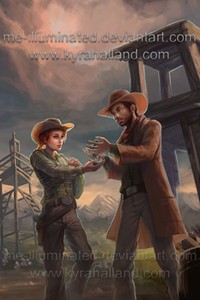 So I finished the first draft of Book 4 of Daughter of the Wildings and was planning Book 5, when one night it came to me, as I was brushing my teeth, that there needs to be a sixth book in the series. I panicked, wondering if there was enough story left to make up a whole other book. But as I thought about it that night (I usually lay awake late at night working out plots and story problems in my mind) and sat down and did a bunch of scene brainstorming and story development the next day, I realized that yes, there does have to be a sixth book, and there's plenty of story for two books instead of one. So a Book 6 there will be. I think I've known, way deep down, for a long time that it would take another book to finish off the series properly. For a long time I had envisioned the events of Book 5, which moves the story from the frontier - the Wildings - into the civilized land of Granadaia, as being the climactic events of the series. But that just didn't seem right. The series is called Daughter of the Wildings, and it's about that uncivilized frontier land, its unique magic, and the connection between Lainie Banfrey (the Daughter in the series) and the land and its magic. Finishing it off in Granadaia without coming back to what is the heart of the series would be an unsatisfactory ending that doesn't fit with what the series is about. The more I thought about it, the more I realized that the events in Granadaia are the leadup to the climactic events, and not the actual climax themselves. The story has to come back to the Wildings, to the threats to the land and the people that have been building up through all the other books, and to the real significance of Lainie's unique power and her relationship to the land, and also integrate Silas fully into that relationship, in order to tie everything together and bring the story to a meaningful and satisfying conclusion. As I thought this through, I thought that maybe the Granadaia part and the return to the Wildings part could just be two halves of the same book. But the more I developed the storyline, the more it became clear that the two halves of the book are also two totally different story lines, each with its own central story problem, instigating events, development, and conclusion. I aso realized that if the book was going to be an equivalent length with the previous books in the series, I was going to have to skim over or leave out a lot of important stuff, or else the book was going to be twice as long as the other books. Therefore, the obvious answer, which waited for that brainless and bored moment of brushing my teeth to hit me upside the head, is to split "Book 5" into two books. I think I'm about ready to start writing the last two books. As with the other books so far in the series, there's this feeling of jumping into the deep end without really knowing how deep the water is or what's waiting in there. I know where the books start, and where they end, and have a general idea of what happens in between, but very few of the details are clear. But so far it's worked out well, so I just have to make that leap of faith two more times. I think I'll just write straight through, without stopping between books 5 and 6, since I'd already been planning them as a single unit. With hard work and a minimum of interruptions, I hope to finish the drafts of both books by October. So, yay! More time with Silas and Lainie! And none of this is even taking into consideration my idea for a possible follow-up series. Note on the story blurbs for Daughter of the Wildings: All six are up. I apologize for any cheesiness, especially in the last few. Writing blurbs is hard, especially if you're trying not to give away any spoilers. And I want to stipulate that in my books, suggesting that the hero and heroine end up together is not a spoiler. In addition to being fantasy, my books are also romance, and to be a proper romance (as opposed to more general love story), you have to have the Happily (even if things aren't easy) Ever After. It's expected, as a hallmark of the genre. (Plus I hate unhappy endings.) The question isn't if they end up together, but how. In the meantime, edits on The Lost Book of Anggird are progressing apace (I'm planning a blog post on the worst writing advice ever and how it nearly killed Lost Book), along with the first major revision of Sarya's Song. Maybe I'll do a post on that too, how I struggled with it for years, then applied some very helpful story-planning techniques, and now have the least-broken first draft I think I've ever written. I now have in my hot little hands (on my hot little hard drive?) the cover illustration for Sarya's Song. I think I said something once about "luciously dark and romantic," and oh my, it is! It's gorgeous! I'll reveal the cover on Saturday; watch for it! For my Camp NaNo project, Book 4 of Daughter of the Wildings, I'm up to 23,252/30,000 words. Like I've mentioned before, the drafts of these books are fairly short, but I tend to "write short" in my first drafts and then fill in when I revise, so I expect them to end up in about the 50,000 word range by the time I release them. Silas is always good for a quotable quote, and here's today's: "Lainie, wait." Now, I really hate it when in books there's some kind of dangerous situation that has to be faced, and the man says, "I am the man and you are just a girl and I must protect you and keep you from going into danger because I am a manly man, and I don't care that having you along might actually be helpful or that you'll feel as bad if I get killed as I'll feel if you get killed." And the woman says, "Silly man, you can't tell me what to do because I Am Woman and no stupid man can tell me what to do even if it means I put myself in danger unnecessarily and make things harder for you because then you have to worry about me in addition to yourself."
I mean, I really hate that. But I don't think that's what's going on here. Lainie and Silas are both in a pretty precarious situation with the law (as represented by the Mage Council), and a dangerous confrontation with some other mages is coming up. Lainie believes that Silas is in just as much danger as she is, plus she has certain skills that can really help in a situation like this (that is, saved his butt more than once before), and yes, she would feel just as bad if he was captured or killed as he would feel if something happened to her. On the other hand, Silas has reason to believe that Lainie has seriously underestimated the danger to herself, and that any display of these special skills will only make her situation worse. He has no intention of getting himself killed; he just wants to deal with this situation as quickly and efficiently as possible, and then take Lainie and get the hell out of Dodge (if Dodge City existed in their world). She, however, has equally compelling reasons for not wanting to run away. Anyway, I was trying to come up with a satisfactory way to top off this argument, and that quote from Silas kind of came out of nowhere (as Silas's best quotes usually do), and I like it, along with Lainie's rejoinder at the end - she can give as good as she gets. So I really really hope I'm not doing that thing that I hate. Author spotlights coming up Thursday and Friday, and then don't forget, the Sarya's Song cover reveal on Saturday! 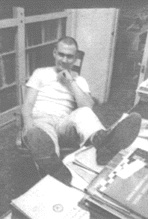 So, it's Father's Day. I never know what to get my dad for Father's Day. Anything he doesn't already have, either I can't afford it, or he either goes out and gets it himself or just doesn't want it. I always send my mom flowers for Mother's Day, but my dad's not really a flowers kind of guy. So what do you give the dad who has everything? A blog post dedicated to him, of course! Here are things I learned from my dad (that's him in his college days in the picture), and ways he influenced me, to make me what I am today (and I consider what I am today to be a good thing!): 1. He and my mom always emphasized education and had high expectations for me and my three siblings. These high expectations were kind of hard to deal with sometimes, but it became ingrained in me that I'm capable of excellence if I work at it. I haven't always been very good at the whole work ethic thing, but when I do find something I want to work hard at, it's there. 2. He read "The Hobbit" out loud to us when we were little kids, along with other books - I seem to recall "The Wind in the Willows," and definitely "A Christmas Carol." He and my mom also gave me a box set of the Earthsea Trilogy when I was 11 or 12 years old (either for my birthday or for Christmas, I don't remember.) This launched my love of fantasy and imaginative literature at an early age and let me know that it's ok to explore the imagination and to invent worlds and things that don't exist in the "real world." 3. Although he made a career as a research physicist and physics professor, he has always worked with his hands. He grew up working as a carpenter with his father and grandfather, and has continued to do carpentry along with vegetable gardening and yardwork through his adult life. That taught me that manual labor is as fulfilling and worthwhile as work that's done with the mind, and any kind of work done honestly and to the best of your ability is something to be proud of. 4. He did also teach me - I'm not sure if this was inadvertant or not - that some jobs just aren't worth doing and that you want to do whatever it takes to make sure those kinds of jobs are not your only option. When I was 11 or 12 he strongly "encouraged" (I recall it as "forced" but my memory might not be correct on that) me to get a paper route. The old-fashioned kind, where the kid rode around on a bike tossing papers onto driveways and then knocking on strangers' doors once a month to collect the money. For the afternoon paper. In Phoenix, Arizona. In the summer. I hated it. I delivered papers for two or three years and hated every minute of it. And the pay worked out to maybe pennies per hour. It's worth it to do whatever you have to do to learn and acquire skills so that a crappy job like that isn't your only option. (Sometimes you have to take whatever you can get in order to pay the bills, but you want to be able to move to something better if the opportunity comes along.) 5. He's very musical (so is my mom; they first got to know each other in their high school pep band; not sure how my mom, being a pianist, fit into that, but that's what happened) and music was important in our home. When I was in 5th grade, he "encouraged" (there's that word again) me to take up the flute. I enjoyed music and got pretty serious about it, with the result that I majored in music in college and that's how I met my wonderful husband. So, thanks for that, Dad :-D 6. Even after he retired from his position as a professor, he still remains a scientist and a teacher, with the motto, "You retire from what you do, not from what you are." Because of this, I'm able to think of myself as a writer, even if I don't make any money at it (which isn't the case, I am making some money, not a lot so far but some) and even if some external agency or organization doesn't validate me with that title. 7. There's a saying that the best thing a man can do for his children is to love their mother, and my dad embodies this. He and my mom have been together as friends, sweethearts, and husband and wife for probably sixty years now. Because of this (and because of my own marriage), I believe in true love and happily ever after, and that's why I write about those things. Some writers say that happily ever after is unrealistic - it doesn't work that way in love or in life. Yeah, life is hard, there are always going to be challenges, and in my books, even when the hero and heroine end up happily together they still face challenges and difficulties. But challenges are better faced with your best friend, lover, and sweetheart at your side, and you come out stronger at the end for going through them together. 8. When it comes to politics, my dad and I disagree probably 95% of the time (the one thing we seem to agree on consistently is on having no desire to belong to a political party). From my dad, I've learned that someone can disagree with you and still be a good person. 9. My dad gave me my first computer as a combination First Mother's Day/Grad School Graduation gift in 1989. It was one of those where you had to start it up by inserting a 5-inch floppy with the OS on it. When I decided to try my hand at writing novels some months later, I quickly discovered how much easier it is to write stuff on a computer than by hand or on a typewriter. I still have my original writing from that old computer, transferred from disk type to disk type and format to format at least five or six times since then. Some pretty darn good ideas, too, including my first two complete novels which one day I will revise and release. Urdaisunia was initially written on that old computer, too. 10. My dad's faith has always been an inspiration and example to me. He's a scientist, and probably the most intelligent person I know, and he's living proof that reason and intelligence and deep, devout faith are perfectly compatible - not just that, but they build on and increase each other. I wandered a bit for some years in my early adulthood, but I eventually came to fully embrace the beliefs and faith that he and my mom taught us and raised us in, and that's a gift as great as any other he's ever given me. 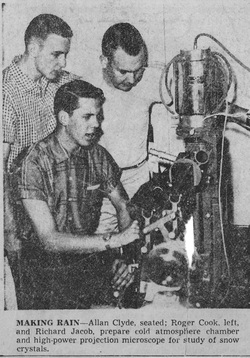 Happy Father's Day, Dad. Love you! (And here's one more picture of him, doing science stuff. He's the one on the right.) Earlier this month, I got an email from an old college friend asking if my books are suitable for a couple of teenage girls in her life. I also had the opportunity to lend my proof copy of Urdaisunia to a good friend of mine, who also happens to be the wife of our current clergyman (in our church, the leaders of the congregation are drawn from the membership and rotated about every 5-7 years). These incidents, along with a discussion on my Goodreads group about content and age appropriateness got me thinking that I should do a post about content and age appropriateness of my books, as a guide for anyone who might be concerned about that.
To establish some context, I'll start by saying that when I was growing up, my parents told me that none of the books in the house were off-limits to me, and if I had any questions about anything I read I was welcome to bring it up with them. I think I was about 11 or 12 at the time. Of course, being the upright, church-going people that they are, my parents didn't have any pornography or anything like that in the house, but they did buy a regular supply of the current best-sellers, with all that entails. The first book I read with my newly-granted freedom (or maybe this was the book that inspired that conversation) was The Poseidon Adventure. The original movie had come out not long before, and the theme song from the movie was a big hit on Top 40 radio, so I was curious. Anyway, I grew up with the idea that, with proper parental involvement, teens should have few if any restrictions placed on what they read. Of course, now, erotica and books with very explicit sex scenes are a lot more mainstream than they used to be, and I wouldn't be wild about the idea of my own teens reading those. So I'll agree that parents, and anyone who doesn't care to read explicit material, need to exercise more caution now than maybe they used to. Sex isn't the only concern in deciding the appropriateness of reading material. Graphic violence is something that many parents and readers are concerned about; along with, at least for me, the cause served by the violence. I'm less bothered by reading about a villain being graphically and colorfully disposed of than I would be if the same methods were used against a hero, innocent bystander, child, or animal. Strong language bothers some people. Readers and parents might also object to what they consider sacrilegious content. A handful of f-bombs in a book doesn't bother me, but I've been known to put a book down because of light or disrespectful treatment of matters that are sacred to me. Some people might not like to see people of certain genders or races portrayed in certain ways. Some people might object to a specific political slant. The exact definition of what's offensive or inappropriate is different for everyone. As another example, I'm presently reading a fantasy novel that I believe is generally considered "clean," although it contains at least one fairly intense scene of near-rape, and I'm left wondering why near-rape is considered less objectionable than consummated lovemaking, just because the act isn't completed. Anyway, the list goes on and on, and the consensus among writers is that you can't please everyone, you're bound to end up offending someone, and the best and only thing a writer can do is to write as honestly as he/she can. So, to the point. How would I rate my books as far as age-appropriateness and offensive content? My books feature adult characters, with adult lives and concerns, and contain "mature themes and situations," including sex and relationships, earning a living, death, war, sacrifice, and the struggle against evil forces that disrupt their world. A principle I try to follow in my writing is that everything in the story is there because it's needed. (I'm not perfect at this, but it's what I aspire to.) The corollary to that is, if something needs to be in the story, I put it in. If some important story or character development requires a sex scene, I put in a sex scene, though I leave out any description that isn't important to the point I'm trying to make. However, if some detail of the act is important, I'll include that - but still in the least graphic manner that still gets the job done. My aim is never to titillate the reader - I don't want the reader to be pulled out of the story by thinking about their own reaction to what I've written, I want them to be engrossed in what's happening with the characters (this applies to everything I write, not just sex scenes). On the other hand, if the important character and story business take place before the sex scene, I'll draw the curtain. In Urdaisunia, we don't need to know what Prince Eruz does with his three concubines (no, seriously, we don't); what we need to know is the desperate state of mind he's in that drives him to seek comfort that way. Same thing with violence. Prince Eruz has to execute some people. The important thing is what's going on inside Eruz's head as he is forced to carry out these executions, not graphic descriptions of the actual deaths, so that's where the focus is in the writing. In Lost Book of Anggird, a couple of reprehensible people are killed in a particularly grisly way as punishment for their misdeeds; the act of carrying out the killings is cathartic to the person who does it, as well as demonstrating the extreme state of mind that character is in, so I focus on that in the writing and not on the (literally) gory details. Language: I try to use restraint in the use of strong or offensive language, because it loses its impact if it's overused. (A personal line for me is not to use religious oaths that apply in our world; on the other hand, characters in an invented world using oaths that reference invented gods aren't a problem for me.) Again, if it's necessary to communicate what the character is experiencing, or if the use of strong language is appropriate to how the character would speak in a given situation, I'll put in just what's necessary. There's a bit of language in Urdaisunia that's rougher than I would normally use, but it's coming from a thoroughly bad person who is purposely being as insulting and offensive as possible. Anything milder in that situation would have sounded silly. And so on. In general, I try to put in what the story requires to be told honestly and completely, without going overboard, and certainly without any intent to purposely shock, offend, or titillate. If you want something more concrete, here is where I rate my books on a couple of different scales: On the All-Romance Ebooks Heat Rating scale, from 1 - 5 flames, I rate my books a 2: "some [consummated] love scenes. These will be more sensual than graphic and will mostly rely on euphemism." Some parts might edge up just a bit to a low 3, with slightly more graphic description. My short stories run from 0 - 1 flame. Alternatively, here's a rating scale I devised for fanfiction (another post for another time): G: Nothing offensive, possibly some slight angst PG: Occasional mild language, sexual references, mild violence, angsty PG-13: More frequent language, strongly implied or "on-camera" (non-explicit) sex, more violence, intense angst R: Strong language, more descriptive (but still non-explicit) sex, semi-graphic violence M: extreme foul language, explicit sexual description, graphic violence. On this scale, my books run PG-13 - R. (Short stories G - PG-13). As far as age recommendations go, my books are definitely not for children. Also not for young teens. As far as older teens go, my books don't fit into the currently-popular Young Adult category, mainly because they have adult rather than teenage main characters and address adult concerns rather than the typical coming-of-age themes usually addressed in YA books, and also may have somewhat more graphic content (though my understanding is that there are plenty of YA books with intense and disturbing content, that address serious issues of sex, drugs, abuse, and so on). Based on my own experience at that age - there wasn't a YA category back then, or if there was it wasn't nearly as prevalent as it is now, and when you were in high school you went from reading middle grade/young teen books to adult books - I think my books are suitable for ages 16 and up. I wouldn't have a problem with my 17-year-old reading them (aside from the embarrassment factor of kid reading love scenes written by his mom!) I mean, really, I'm not exactly writing 50 Shades here. But, ultimately, the appropriateness of my books is not a decision I'm qualified to make for other parents - or any other reader, period. I hope the information in this post will give readers and parents the information they need to make the right decision for themselves. First off today, I'm very pleased to be spotlighted on J.J. DiBenedetto's blog! J.J. also left a very lovely review for Urdaisunia on Goodreads. Go check it out, and also make sure you check out his paranormal suspense "Dream" series.
This just in: I'm also featured on Robin Leigh Morgan's website and blog! Go take a look, and also check out her YA paranormal romance, I Kissed A Ghost. Some time ago, I promised a post on why there aren't any elves, fairies, or dragons in my stories. The short answer to this question is, because so far I haven't seen any reason to put any in. The longer, and hopefully more interesting answer is: When I'm reading a novel and come across a character of a fantasy race (elves, fairies, dwarves, etc.) I almost always find myself asking, "Why isn't this character human? What makes this character something besides a human with heightened senses/love of nature/pointy ears/superior attitude or short/has a beard/likes beer/lives underground?" I find humans fascinating. They come in an endless variety of physical types, temperaments, talents, prejudices, emotions, desires, abilities, habitats, backgrounds, beliefs, and so on. I've found enough to write about just with humans as characters (and, ok, gods here and there, but there's good reasons why gods are gods) without adding the artificial differences of designating them as "elves" or "dwarves" or whatever. If there are going to be different races, for me there has to be a significant reason that matters to the story why those characters cannot be any sort of human. The best example of this I've ever read is the Danae in the Flesh and Spirit/Breath and Bone duology by Carol Berg. The Danae are an elvish/fae-like race with a superficial resemblance to humans. However, everything from their physiology to their ways of interacting with and affecting their world are completely alien. (Although their biology is close enough to allow them to interbreed with humans.) Their stages of growth are marked by increases in magical abilities, and the appearance of really cool glowing blue tattoo-like markings on their bodies. Their way of getting around their world and ours is not limited by things like physical location and distance but relies more on the resemblances between one place and another. Their magic is based on dance, and their dances have a very real effect on their world and the human world. And the list of fundamental things that make the Danae who they are and not human goes on and on. Their very unhumanness (yes, that's a word, I'm a writer and I used it, that makes it a word) is a pivotal point in the story and has a profound effect on the main character. Another of my favorite examples of the use of fantasy races is in The War of the Flowers by Tad Williams. I read this a number of years ago and don't remember a whole lot about it, but I do remember that the differences between humans and the various fantasy races in the book went a lot deeper than just name, appearances, and general outlook on life. If I ever write a story where it's essential to have a character that is non-human on a very deep, fundamental level, that has differences from humans that go beyond the wide variety of characteristics that humans already display, then I'll do that. But so far, just plain old humans have been keeping me plenty busy. But what about dragons? They're clearly not just humans that are lizard-shaped, scaley, have wings, and breathe fire. But a lot of other people have written about dragons, and written about them far better than I ever could, so I don't really feel like that's something I need to push myself to do. If I ever have a story idea that requires a dragon, I'll use a dragon. But so far I haven't. My favorite stories with dragons? A Wizard of Earthsea and The Farthest Shore by Ursula K. LeGuin. Great dragons, not at all pets or just dragony humans, but with their own history and way of looking at life and the world. I also enjoyed Song of the Beast, by Carol Berg. (btw, everything Carol Berg writes is awesome. You should read it.) (also btw, an older edition of A Wizard of Earthsea has one of the worst covers I've ever seen. Go check it out if you dare, but remember, what has been seen cannot be un-seen.) Today's Camp NaNo output:
1517 words Total: 5234/30,000 words. Have I mentioned how much fun this series, Daughter of the Wildings, is to write? Aside from the issue of it not wanting to let me plan more than a few scenes or chapters in advance, which is completely different from how I usually write. The setting and the characters are so much fun, and I'm finding myself leaving places where I can write short stories and novellas later on to fill in some gaps. The world needs more second-world fantasy (that is, fantasy set in a world completely unconnected to ours) in a wild west type of setting. Anyway. I realized I haven't written anything about Urdaisunia lately. It's published, it's out there, and I've moved on to other projects. But I haven't forgotten about it. There's a story behind the writing of Urdaisunia, and here it is. A long time ago, I wrote my first novel. Like a good little writer, I then found an agent in the Writers Marketplace book at the library, and bundled my novel off to an agent who represented fantasy writers. Then I started my next novel. There were two seeds for this second novel. One was an image that came into my mind, of a peasant woman, destitute and desperate, facing down three men on horseback who were holding swords over her head. Then one of the men, obviously in charge of the other two, orders them, in a language she doesn't understand, to not kill her. The other seed was my fascination at the time (well, I still have it) with very ancient civilizations and cultures. Not the Romans and Greeks, those whippersnappers, but even more ancient. And not the Egyptians, because that's been done. I wanted really, really ancient, and something that you didn't see stuff about all the time. Sumeria fit the bill. I read up about the technology and culture developed by the Sumerians, and their literature and mythology, and began developing a world based on that. You can find more details about the Sumerian influences on Urdaisunia in this post. Then I plopped that peasant woman and the three warriors down in that world, and came up with the idea of an ancient, proud civilization in decline and conquered by newcomers, and the gods of that civilization all in an uproar about what to do about it. I started writing that novel and was having loads of fun with it. In the meantime, I got a response from the literary agency I had contacted, a very nice rejection that made me feel like maybe I would hit the target with the next book. Also in the meantime, though, the word "marketability" had entered my awareness. Whether through reading Writer's Digest magazine, or something in the letter from the agency, or both, I don't remember. But at that point, I realized that I was not only going to have to write something good, I was also going to have to write something that an agent would find marketable and that the agent would be able to convince an editor at a publishing company was marketable. And then I froze up. I had no idea what someone else was going to think was marketable - I still don't. I don't know if anyone does. All I knew was that I had never seen anything like the novel I was writing on the fantasy shelves at bookstores (pre-Medieval, non-European setting, no wizards and magic, all these gods running around doing their soap opera thing), which said to me that books like that were not considered marketable. I mean, I couldn't be the only person who ever thought of writing something like that. So I tried to change the story. I stuck some wizard and magic stuff (beyond the small amount that came organically) into the story and tried to make the whole thing with the gods a little less weird, and just tried to make the whole structure of the novel more like that of the fantasy novels I was reading at the time. The more I tried to make the novel "marketable," the bigger mess it turned into, and finally I just gave up - both on the novel and on the idea of trying to get published, since it was now apparent to me that I didn't have a clue about how to write the kinds of things that agents and publishers would want. This was in about 1991. Fast forward to, oh, 2005, 2006, or so. Those characters - the peasant-rebel woman, the hapless prince, the scheming gods, wouldn't leave me alone. So I dug into my old story files and hauled out my old printouts, gave the first few chapters a quick edit, and started posting them on my old fiction website, with the intent of writing and posting the rest of it one chapter at a time. How did that work out? About as well as you'd expect it to. I had a mishmash of the different old versions I'd tried writing, plot threads that went nowhere, and no clue how I wanted it to work out at the end. So I chucked the whole idea again. But those darn characters STILL wouldn't leave me alone. So in, hmm, early 2010, on a creative high after completing my first National Novel Writing Month challenge, I hauled out all my old notes and files and printouts, plopped whatever was salvagable into a Liquid Story Binder project, and patchworked together a complete manuscript from usable old bits and newly-written material. It felt really good to finally reach The End on the novel I'd started nearly twenty years earlier. There was just one problem, though. It was awful. Between my execrable "high fantasy" narrative style from when I first started writing, and the "let's just get this over with" brain dumps in the new stuff, and the random bits of deleted characters and subplots still lying around, it was a huge mess. I figured that one day I would tackle it and make something out of it, but I had no idea how. And then I discovered Holly Lisle's How To Revise Your Novel online course. It sounded good, and I was gearing up to dive into the world of self-publishing and wanted to get the editorial skills to be able to make my books as good as I could, so I signed up. The project I chose to do the course with was that thrice-abandoned mess, Urdaisunia. I figured if the method taught in the course could make something readable out of that thing, then it could work on any book. The course has five months worth of lessons, but it took me longer than that to get all the way through all the work. It was hard - just reading my rough draft made my eyeballs bleed at times, and I had to dig down really deep to find the really cool story that lay buried far beneath the surface. But I did it, I tore that thing apart, pulled out and dusted off what was good and got rid of the bad, and put it all back together again. When I finally finished the first revision, I sent my vastly improved story out to some friends who bravely agreed to test-read it for me, did another big revision based on their feedback and some more ideas I'd had about the story, and then, when all that was done, realized I had a novel I was proud of. And, well, the rest is history. I did the final edits, formatted it, and now that story I abandoned long ago as being a hopeless cause is now out there, on Amazon and in paperback and everything (in theory, you can even go to your favorite bricks&mortar bookstore and special-order it). It's an incredible feeling. And Rashali and Eruz and all those bickering gods are much, much happier with me now. So I went and did my civic duty on Tuesday. I got put on the short list for a jury, but in the end wasn't selected for the actual jury. Which was just as well, since my chronic fatigue syndrome would make it extremely difficult to serve on even a three-day trial, which this one was. But I was also a little disappointed, since it seemed like an interesting case. One thing about jury duty is there are lots of stories to be found there. The pool of people summoned to jury duty represents all different ages and walks of life. If you like to people-watch, that's a great place to do it. How do people come dressed - casual or all dressed up? What do they bring with them to pass the time? What's their attitude about being there? And what are the "why's" behind all those things? And that's just in the waiting room. Once you get to the courtroom, there are more stories. What's going on with the case? For this one, it was a young woman who was a passenger in a car where a quantity of drugs for sale was found. Did she have anything to do with it, or was it the other person, the driver, who was responsible for the drugs? It would have been interesting to hear the evidence on that. The stories weren't just limited to the person on trial. The prosecuting attorney was blind; she even had her guide dog in the courtroom to guide her up to the judge's bench when one of the prospective jurors wanted to answer a question in private. My husband and I got married after his first year of law school, and I can tell you that getting through law school and taking the bar exam and then practicing law requires a mind-boggling amount of reading and writing. This attorney was making notes with a Braille tool, and I had to wonder how diificult it must have been for her to successfully get through school and pass the bar and then function in this job, and what it was that drove her to tackle all these hardships and challenges and make it to where she was. On the defense side, one of the defense attorneys was a young woman from a small town (she mentioned it because a few of the prospective jurors were from the same small town, and she wanted to make sure none of them knew her) and from an ethnic background that tends to be poor and under-educated. What made her decide to become a lawyer, and what drove her to overcome the challenges she might have faced to get to that courtroom? Then, as I was thinking about those two women, I realized that two of my female characters, Perarre from The Lost Book of Anggird and Sarya from Sarya's Song are women who have worked their way into academically challenging professions despite great odds against them. So that seems to be a theme that I'm drawn to. And then there were the prospective jurors. We each had to give a short biographical statement about ourselves. Everyone's life is different, and everyone's life has something unique and interesting about it. Careers, educational background, family situations, interests - no two people had the same combination of things. One thing they asked was what bumper stickers we have on our cars. I was surprised that almost no one had bumper stickers, and the few who did had something completely innocuous (like me; my only bumper sticker is for my college alumni association). I was also surprised that more than one person had a son in prison. Those people did not make it onto the final jury. You could hear the emotion in their voices as they answered the question if you have a friend or family member in jail. That must be an incredibly heartbreaking thing to go through. They also asked if we have previous experience on a jury, what kind of case, and what the verdict was. I was on the jury once in a robbery case, and we returned a guilty verdict. (The evidence was clear, but it was incredibly hard to pass a judgment on someone which meant that he would have to go to prison.) I'm guessing that that's why they didn't put me on the jury; defense attorneys probably don't like that. So that was my day of jury duty. Going by how I feel today, two days later, I should probably try to get a medical exemption next time I'm summoned. But it was definitely worthwhile, both for knowing that I was fulfilling my civic responsibility, and for the nourishment for my writer's brain. No Camp NaNo word count on Tuesday, obviously. Yesterday I only got 848. Total word count: 2357/30,000 And I kind of liked this line from yesterday's output (remember this is raw and unedited, fresh from my brain): Being found out as a mage was bad enough; being found out as a mage who cheated at cards would entitle that mage to additional gruesome variations on the standard hanging. So, back to work now. Planning to write a good big chunk on that Camp NaNo novel today, and continue progress on the revision of Chosen of Azara. It needs more work that I had thought, so the release date might be getting pushed back to June. I'll see how it goes when I get to the parts that need major rewriting.
|
AuthorI am Kyra Halland, author of tales of fantasy, heroism, and romance. Sign up for my email list
My Books
More Books
Click on the covers for more information
Categories
All
Archives
April 2024
Kyra Halland: Welcome to My Worlds is a participant in the Amazon Services LLC Associates Program, an affiliate advertising program designed to provide a means for sites to earn advertising fees by advertising and linking to amazon.com.
Other links on this site may also lead to products for which the owner may receive compensation. This website uses marketing and tracking technologies. Opting out of this will opt you out of all cookies, except for those needed to run the website. Note that some products may not work as well without tracking cookies. Opt Out of Cookies |
 RSS Feed
RSS Feed
